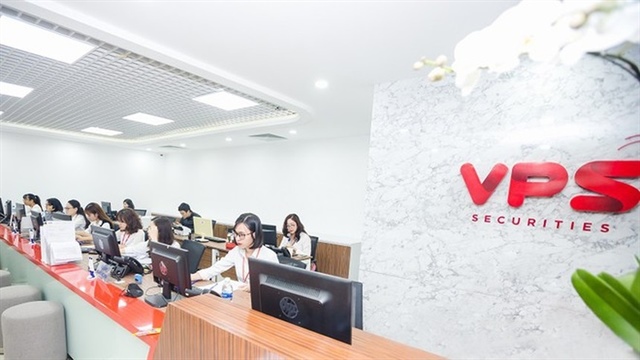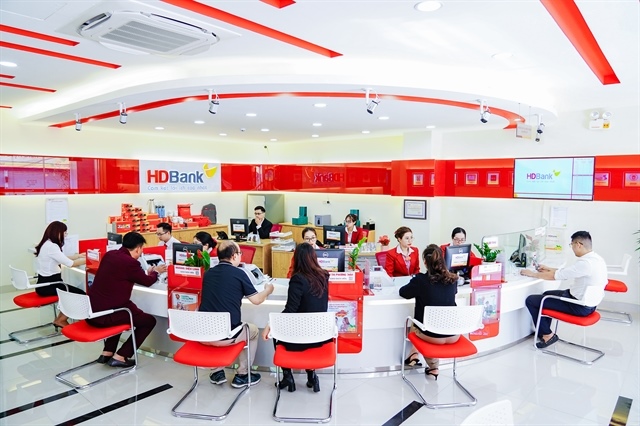Moody's downgrades ACB
Moody's downgrades ACB
Moody's Investors Service has downgraded the standalone bank financial strength rating (BFSR) of Asia Commercial Joint Stock Bank (ACB) to E+ from D-, which now maps to a baseline credit assessment (BCA) of b1 on the long-term scale.
At the same time, Moody's has also downgraded the bank's local currency long-term deposit and issuer ratings to B1 from Ba3.
The outlook for these ratings is stable.
This downgrade takes place in the context of (i) an ongoing global review affecting all banks whose standalone ratings are higher than the rating of the government where they are domiciled, as well as (ii) the bank's deteriorating capital and asset quality metrics.
ACB's B1 foreign currency long-term issuer rating and B2 long-term foreign-currency deposit rating were affirmed with a negative outlook, following the outlook for Vietnam's foreign currency bond and deposit ceilings.
The bank's Not-Prime short-term ratings remain unaffected.
This rating action concludes the review for downgrade on ACB that was initiated on 18 April 2012, which derived from Moody's updated assessment of the linkage between the credit profiles of sovereigns and other institutions domiciled within the sovereign. This global review is discussed in the rating implementation guidance "How Sovereign Credit Quality May Affect Other Ratings" published on 13 February 2012, and further detailed in the special comment "Banks and Sovereigns: Risk Correlations Constrain Standalone Bank Credit Assessments" published on 30 April 2012.
RATINGS RATIONALE
DOWNGRADE OF STANDALONE RATINGS TO THE SOVEREIGN DEBT RATING LEVEL
The downgrade of ACB's standalone rating reflects Moody's assessment that the creditworthiness of banks is highly correlated with that of their home government's credit strength, taking into account (i) the extent to which their business depends on the domestic macroeconomic and financial environment; (ii) the degree of reliance on market-based, and therefore more confidence-sensitive, funding; and (iii) their direct or indirect exposures to domestic sovereign debt, compared with their capital base.
In ACB's case, the key drivers for the rating action were (i) the relatively low level of cross-border diversification of its operations; (ii) the high level of balance-sheet exposure to domestic sovereign debt, compared with its capital base; (iii) franchise resilience and intrinsic strength within the operating environment; and (iv) the absence of ongoing support from foreign ownership.
Our review indicated that there are little, if any, reasons to believe that the bank would be insulated from a government debt crisis. More particularly, we note the bank's significant direct exposure to Vietnamese government securities, equivalent to 124% of tier 1 capital at the end of 2011. In addition, the bank is primarily a domestic institution with similar macroeconomic exposures as the sovereign government. Therefore, we view the lower standalone rating -- which is now positioned at the rating of the Vietnamese government -- as more appropriate to capture the credit profile of the bank.
Furthermore, the revised rating reflects the balance of the ACB's other strengths and weaknesses.
At ACB, the revised ratings also incorporate the challenges which the bank faces in increasing its capital ratio to provide a larger cushion to absorb losses. The bank reported a decline in its Tier I capital ratio for two consecutive years; it was 6.1% at end-2011, down from a high of 11.3% at end-2009, as per Basel I calculations.
Also, in stressed conditions, the bank's ability to absorb expected medium-term credit losses under Moody's stress-test scenarios is weaker than its rated peers, not only because of its relatively lower core capital levels, but also its comparatively lower loan-loss reserves cushion.
Moody's believes that Vietnamese banks require Tier 1 capital ratios well in excess of 9% in order to provide adequate coverage in the current challenging economic environment in the country as well as support future loan growth.
Separately, the bank's asset quality is deteriorating and its true level of non-performing loans by international standards is hard to estimate. Based on Vietnamese Accounting Standards (VAS), non-performing loans (defined as loans 90+ days overdue) increased to VND918 billion (0.9% of gross loans) at end-2011, from VND 293 billion (0.3%) at end-2010. Moody's expects asset quality risks to increase during the next two years.
On the other hand, ACB's rating also captures (i) the bank's large franchise as the fifth-largest bank in the system, and the largest joint-stock bank; (ii) the bank's relatively strong profitability, good efficiency, and strong liquidity; and (iii) the bank's disciplined credit approval and monitoring process, progressive risk management and controls, as well as the benefits of skills transfers from its shareholder (15% strategic stake), Standard Chartered Bank.
We continue to assess a high likelihood of systemic support for the bank due to its importance to the banking system, but this does not lead to any uplift in the bank's local currency deposit rating of B1, two notches below the local currency deposit ceiling of Ba2.
moody's


















